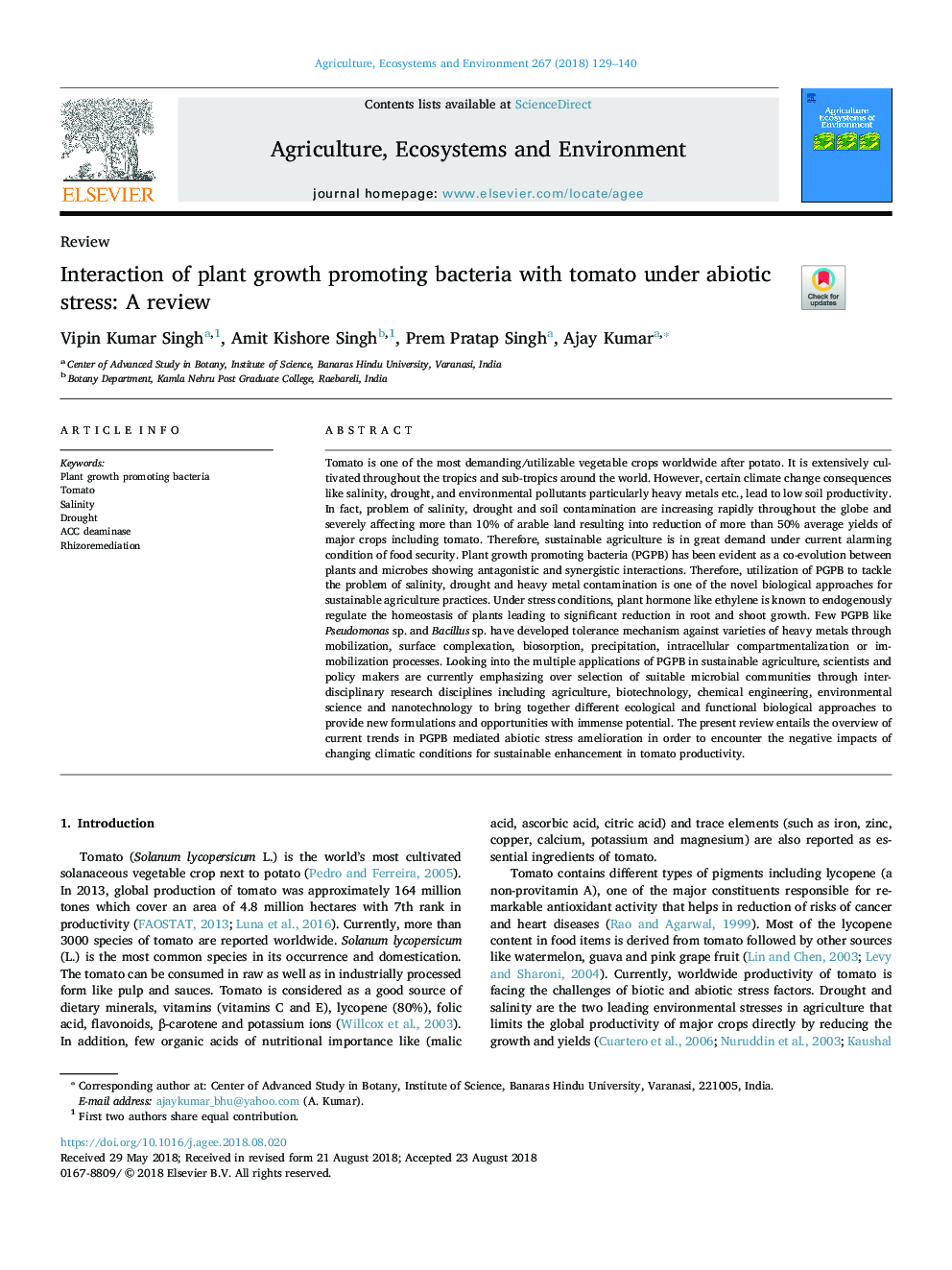| Article ID | Journal | Published Year | Pages | File Type |
|---|---|---|---|---|
| 9954573 | Agriculture, Ecosystems & Environment | 2018 | 12 Pages |
Abstract
Tomato is one of the most demanding/utilizable vegetable crops worldwide after potato. It is extensively cultivated throughout the tropics and sub-tropics around the world. However, certain climate change consequences like salinity, drought, and environmental pollutants particularly heavy metals etc., lead to low soil productivity. In fact, problem of salinity, drought and soil contamination are increasing rapidly throughout the globe and severely affecting more than 10% of arable land resulting into reduction of more than 50% average yields of major crops including tomato. Therefore, sustainable agriculture is in great demand under current alarming condition of food security. Plant growth promoting bacteria (PGPB) has been evident as a co-evolution between plants and microbes showing antagonistic and synergistic interactions. Therefore, utilization of PGPB to tackle the problem of salinity, drought and heavy metal contamination is one of the novel biological approaches for sustainable agriculture practices. Under stress conditions, plant hormone like ethylene is known to endogenously regulate the homeostasis of plants leading to significant reduction in root and shoot growth. Few PGPB like Pseudomonas sp. and Bacillus sp. have developed tolerance mechanism against varieties of heavy metals through mobilization, surface complexation, biosorption, precipitation, intracellular compartmentalization or immobilization processes. Looking into the multiple applications of PGPB in sustainable agriculture, scientists and policy makers are currently emphasizing over selection of suitable microbial communities through interdisciplinary research disciplines including agriculture, biotechnology, chemical engineering, environmental science and nanotechnology to bring together different ecological and functional biological approaches to provide new formulations and opportunities with immense potential. The present review entails the overview of current trends in PGPB mediated abiotic stress amelioration in order to encounter the negative impacts of changing climatic conditions for sustainable enhancement in tomato productivity.
Related Topics
Life Sciences
Agricultural and Biological Sciences
Agronomy and Crop Science
Authors
Vipin Kumar Singh, Amit Kishore Singh, Prem Pratap Singh, Ajay Kumar,
